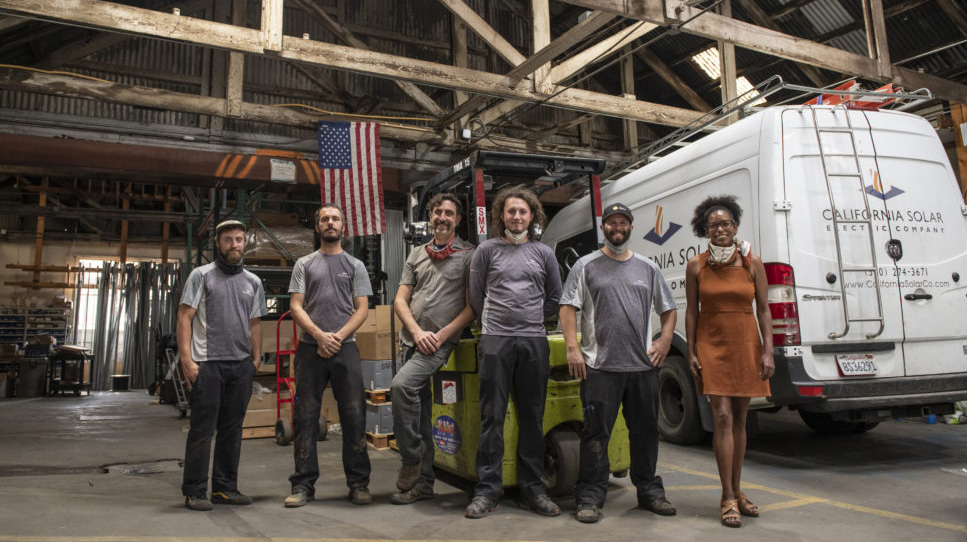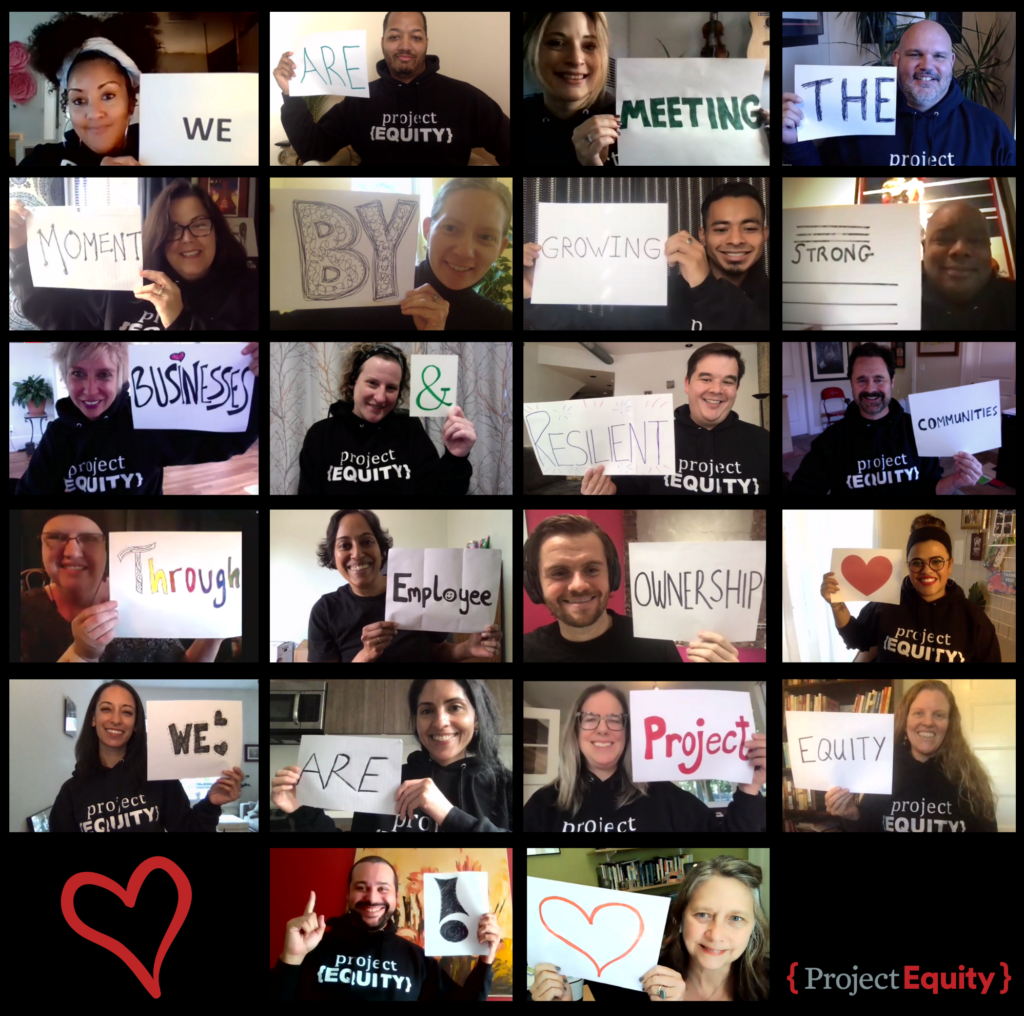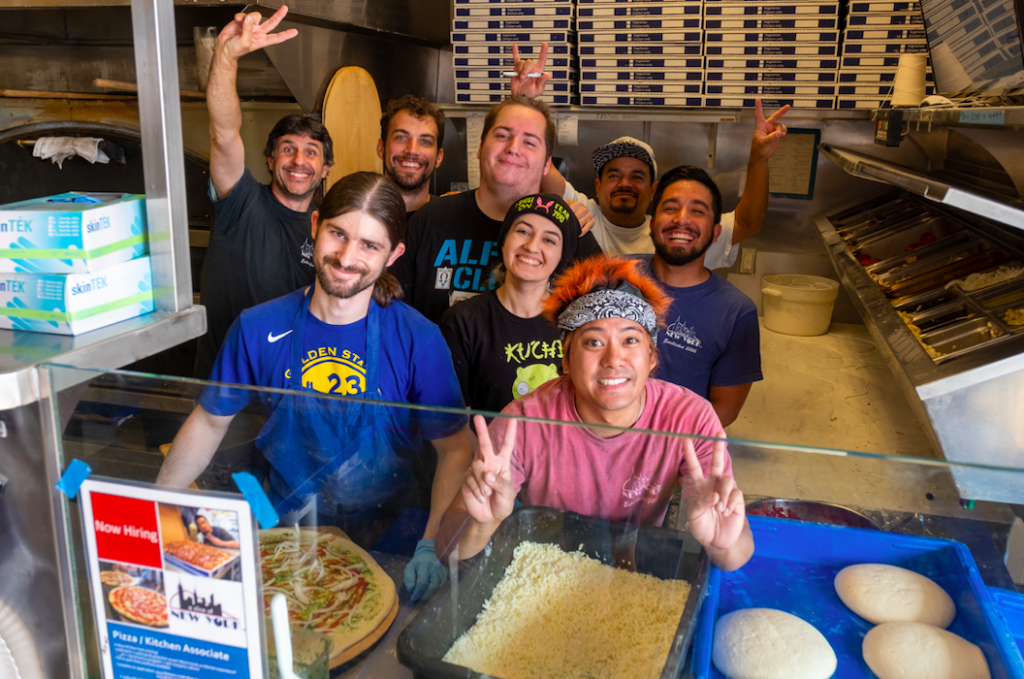
Project Equity grows community wealth through employee buyouts of successful local businesses resulting in employee ownership. Employee ownership maintains thriving local business communities, honors selling owners’ legacies and addresses income and wealth inequality. Project Equity works with partners around the country to raise awareness about employee ownership as an exit strategy for business owners, and as an important approach for increasing employee engagement and wellbeing.
The San Diego Workforce Partnership connected with Project Equity co-founder, Alison Lingane, to learn more about their successful approach to employee ownership education and transition.

Can you talk about some of the challenges our community faces and how you’re working to overcome them?
The silver tsunami of baby boomer retirements: One of every two local employers nationwide is owned by a baby boomer. Already, before going into the COVID-19 pandemic, our small business community had a real challenge in that half of the businesses need to find buyers over the next 10-15 years. We were already seeing companies with retirement age owners choosing to close their doors instead because it’s the easier option. Or, they closed because of a medical crisis or other reason and they’re at an advanced age and don’t have a succession plan. To them, closing seems to be the only option and that means job losses for the community.
Then, COVID-19 came and for all businesses new costs and challenges arose to make sure everyone was protecting their workforce appropriately. We all love our small business communities and want to make sure they’re thriving. We know that they create jobs, develop loyal customers and contribute to the local flavor of our communities that we rely on. Who’s going to take over next is often not the top-of-mind problem.
Baby boomers are known to be entrepreneurial so the need for support is even greater now and will continue to be over the next 10–15 years. Broadly speaking, we have a need to support our small businesses and let them know there are succession strategies that may have been overlooked, such as employee ownership.

How else is Project Equity impacting the community?
Succession is an option for business success. Employee ownership can help the workforce become highly engaged, where employees are acting with a true sense of ownership and take initiative because there is that buy-in there. Employee ownership has shown to constantly increase business outcomes, including growth and outpacing their competitors. During the COVID-19 pandemic, data has shown that employee-owned businesses are performing better and they’re keeping their employees.
It’s about creating an opportunity for the workforce to have a component of ownership alongside their regular salary/wages and benefits. It creates an extra layer of financial resiliency for them and their families, which can be life changing.
Employee ownership is one of those things that once people understand what it is, it’s a win-win-win but often asks “what’s the catch?” It then becomes our role to educate people and show them that this is a viable option and there is in fact no catch.
Who are some of your partners?
We’ve partnered with Mission Driven Finance to create a fund to help bridge the capital needs of business that are transitioning to employee-owned. Alliance Healthcare Foundation has committed $500k to that fund to support San Diego based companies to explore or transition to employee ownership.
We also regularly partner with the Beyester Institute, which is a local San Diego company who are experts in employee ownership. As peers in the field, we partner on education and awareness on employee ownership and partner on helping specific companies that have chosen to take that path.
We’re also partnering with the San Diego Regional EDC and the San Diego Workforce Partnership to host an event later this month, Right Recovery Town Hall: Resilience through employee ownership.
What else do you want the community to know about Project Equity?
We were thrilled about the recent San Diego icon, Taylor Guitars’, announcement that it is now employee-owned. It’s a really powerful example. Because there’s a low familiarity with employee ownership, some people may not look further into it as an option but there are a wide variety of companies that have chosen an employee ownership structure. There is flexibility in terms of approaching adoption, such as partial or full employee ownership, and it’s something that is done over time.
Sometimes I hear people say, “It’s just so complicated.” The reality is that any choice is complicated. A sale can be part of or the whole business. This is an opportunity for part or full liquidity. There’s no option that’s fast and easy and employee ownership is the same. Because it’s unfamiliar, it can seem complicated. Project Equity is here to make it as uncomplicated as possible and help navigate businesses through the process. It also works across multiple industries, such as manufacturing, construction, landscaping, logistics & shipping, wholesale food production and many others. You can learn more at project-equity.org.
